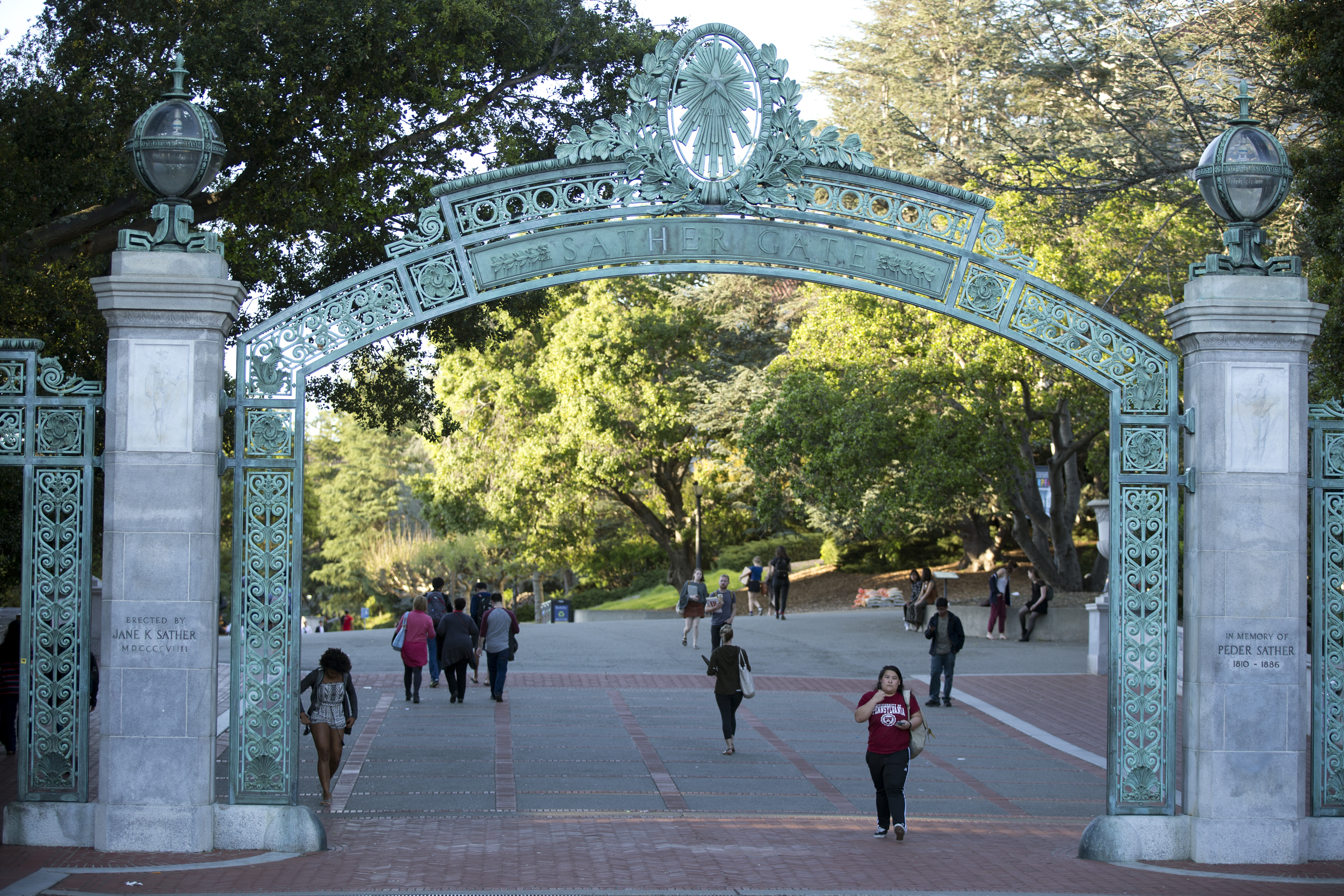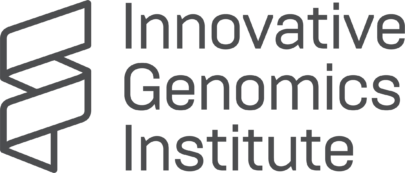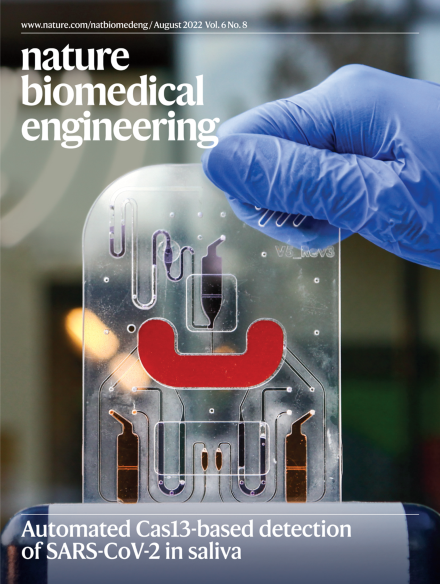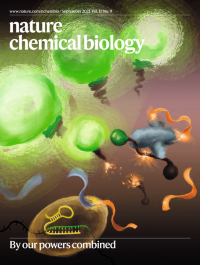We are a lab of inventors working at the intersection of biology, engineering, and AI to develop technologies for biological programming
Overview
We explore the biological diversity of nature and algorithmic diversity of computers to create new ways of improving human health and augmenting our bodies. We have invented technologies for RNA-guided biological design, AI foundation models, and next-generation gene and cell therapies.
To do this, our group draws from a palette of experimental and computational approaches including CRISPR-Cas, machine learning, large-scale bioinformatics, engineered viruses, single cell sequencing and screening, and protein engineering/design.
Our work has been supported by the Arc Institute, Vinod Khosla, Sam Altman, DARPA, the NIH Director's Early Independence Award, the National Institute on Aging, NIGMS, Dipanjan and Shashikala Deb, the Curci Foundation, Emergent Ventures, and the Rainwater Foundation.
Our lab is physically located at the Arc Institute in Stanford Research Park and the Innovative Genomics Institute at UC Berkeley, and additionally affiliated with the California Institute for Quantitative Biosciences (QB3), Berkeley Stem Cell Center, UC Berkeley-UCSF Graduate Program in Bioengineering, Center for Computational Biology and CCB PhD Program, and Biophysics Graduate Program.
News
Bridge RNAs cited in Forbes as one of Five Of The Most Important Medical Breakthroughs Of 2024 and a 2024 Highlight of Nature News & Views
Evo cited in the New York Times for the 2024 Good Tech Award and The Most Important Breakthroughs of 2024 in the Atlantic
Our new preprint on "Site-specific DNA insertion into the human genome with engineered recombinases" is now online!
Our new preprint on "How to Build the Virtual Cell with Artificial Intelligence: Priorities and Opportunities" is now online!
Our new preprint on "A combinatorial domain screening platform reveals epigenetic effector interactions for transcriptional perturbation" is now online!
Check out our collaboration with EvolutionaryScale on ESM3, a frontier multimodal generative language model that reasons over the sequence, structure, and function of proteins
Our discovery of the first programmable recombinases and characterization of its structural mechanism are both published in Nature
Our new preprint on "Designing Cell-Type-Specific Promoter Sequences Using Conservative Model-Based Optimization" is now online! This work was accepted at NeurIPS 2024 and will be presented in December 2024.
Check out the blog post describing Evo, our new genomic foundation model that understands and generates sequences from molecular to whole genome scale!
Our discovery of the bridge RNA mechanism for universal DNA rearrangements is available as a preprint! Learn more via Patrick’s tweet thread.
Our new deep learning paper systematically evaluated seven machine learning models to build a guide efficiency prediction algorithm orthogonally validated across multiple human cell types. Check it out at Cell Systems and learn more about the Arc Tool Portal!
Our serine recombinase study for gene writing is out in Nature Biotechnology! Check out the paper and read more in an Arc Institute blog post and on Genomeweb.
Our new point of care CRISPR diagnostics paper is on the cover of Nature Biomedical Engineering! We develop and integrate an extraction-free, attomolar-sensitivity CRISPR diagnostic test into a microfluidic cartridge and real-time detection device capable of detecting any RNA sequence. Learn more in the accompanying News & Views article and an IGI blog post.
Our genome-wide search for COVID host factors is published in Nature Genetics! Read more in the UC Berkeley news article or on the Arc Institute blog.
Our Arc Institute lab space opens!
Patrick cofounds the Arc Institute, a new research institution for curiosity-driven biomedical science and technology.
Our new pre-print with Bhatt/Bintu/Bassik labs, on “Large-scale discovery of recombinases for integrating DNA into the human genome” is now online! Congrats to Matt, Alison, Josh!
Our paper with the Doudna and Savage labs, on dual CRISPR nucleases for rapid and sensitive one-pot CRISPR diagnostics, is on the cover of Nature Chemical Biology!
Welcome to Nicholas Perry and Michael Herschl, two new graduate students. Nick and Michael come to the lab from HMS/MGH and Stanford.
Sita Chandrasekaran is named a 2021 Paul and Daisy Soros Fellow!
We report a point-of-care system for SARS-CoV-2 viral detection that integrates disposable microfluidic cartridges with real-time fluorescent detection.
We report genome-scale, bidirectional functional screens for COVID-19 host factors, discovering mucin glycoproteins as a prominent antiviral network that restricts viral entry. A wonderful collaboration with the Konermann lab at Stanford and Harris lab at UC Berkeley. So much glycobiology to discover!
With the Doudna and Savage labs at UC Berkeley, we report new mechanisms for amplification-free CRISPR diagnostics with tandem RNA-targeting nucleases
Happy New Year! Welcome to Qi Dang and Matt Durrant, who join the lab as a staff scientist and postdoctoral fellow!
We report a MedRxiv pre-print on rapid viral diagnostics for COVID-19. Congratulations to Shreeya, Alison, and Sita!
Our lab receives a second R01, for structure-function studies of CRISPR systems. Thank you to the NIH for the support.
Alison Fanton is named a NSF Graduate Fellow. Congratulations, Alison!
- Patrick is named a 2020 Rose Hills Innovator along with Dipti Nayak from UC Berkeley MCB.
Our study of COVID-19 antibody tests is now published in Nature Biotechnology.
The lab is funded by Fastgrants for COVID-19 therapeutic and diagnostic development
Our pre-print on validating serology tests for SARS-CoV-2 is online at https://covidtestingproject.org/ and highlighted in the New York Times, CNN, The Scientist, Berkeley News, CBS, Yahoo News, and The Guardian.
Thank you to the Curci Foundation for funding our COVID-19 response effort at IGI!
- Patrick is named the inaugural winner of the Rainwater Prize for Innovative Early-Career Scientist
Exciting news! The Hsu lab will be moving to the Department of Bioengineering at the University of California, Berkeley in Fall 2019. We will be housed in the Innovative Genomics Institute.
We are hiring at all levels (postdocs, graduate students, research assistants)! If you're interested in joining our lab, visit our Join us page.
Our CasRx plasmids are all Blue Flame on Addgene, and have been distributed to over 250 labs worldwide! Get them here: https://www.addgene.org/Patrick_Hsu/
- Patrick is named a 2019 MIT Technology Review Innovator under 35
Peter Lotfy joins Harvard BBS for his PhD studies. Go Peter!
Eleanor Wang, an undergrad in the lab, wins the 2019 Barry Goldwater Scholarship.
Congratulations to Eleanor!Tom Alsaigh is named a KL2 Clinical Scholar! Go Tom!
- We report in Cell the structural basis for the RNA-guided ribonuclease activity of CRISPR-Cas13d.
Out in Nature Communications: we interrogate the specificity of the therapeutically important S. aureus Cas9 ortholog with ~90,000 guide RNA-mismatched target pairs.
- First paper from the Hsu Lab! We report in Cell the development of RNA-targeting CRISPR-CasRx for transcriptome engineering.
- Silvana is named an inaugural HHMI Hannah Gray Fellow. Congratulations, Silvana!
- Patrick Hsu profiled in NIH Director's Blog
- Patrick Hsu named 2015 NIH Director's Early Independence Awardee
- Patrick Hsu appointed Salk Fellow at the Salk Institute for Biological Studies
- Silvana Konermann named 2015 Harold M. Weintraub Graduate Student Awardee
- Patrick Hsu named to 2015 Forbes 30 Under 30
- Previous Research Highlights










